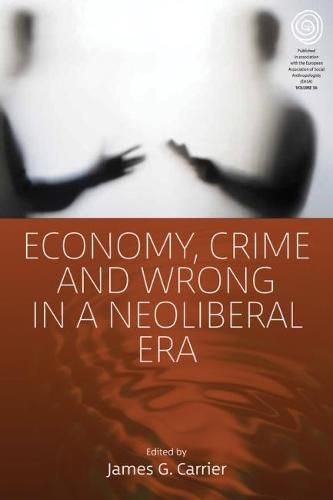Readings Newsletter
Become a Readings Member to make your shopping experience even easier.
Sign in or sign up for free!
You’re not far away from qualifying for FREE standard shipping within Australia
You’ve qualified for FREE standard shipping within Australia
The cart is loading…






This title is printed to order. This book may have been self-published. If so, we cannot guarantee the quality of the content. In the main most books will have gone through the editing process however some may not. We therefore suggest that you be aware of this before ordering this book. If in doubt check either the author or publisher’s details as we are unable to accept any returns unless they are faulty. Please contact us if you have any questions.
Corporate scandals since the 1990s have made it clear that economic wrongdoing is more common in Western societies than might be expected. This volume examines the relationship between such wrong-doing and the neoliberal orientations, policies, and practices that have been influential since around 1980, considering whether neoliberalism has affected the likelihood that people and firms will act in ways that many people would consider wrong. It furthermore asks whether ideas of economic right and wrong have become so fragmented and localized that collective judgement has become almost impossible.
$9.00 standard shipping within Australia
FREE standard shipping within Australia for orders over $100.00
Express & International shipping calculated at checkout
This title is printed to order. This book may have been self-published. If so, we cannot guarantee the quality of the content. In the main most books will have gone through the editing process however some may not. We therefore suggest that you be aware of this before ordering this book. If in doubt check either the author or publisher’s details as we are unable to accept any returns unless they are faulty. Please contact us if you have any questions.
Corporate scandals since the 1990s have made it clear that economic wrongdoing is more common in Western societies than might be expected. This volume examines the relationship between such wrong-doing and the neoliberal orientations, policies, and practices that have been influential since around 1980, considering whether neoliberalism has affected the likelihood that people and firms will act in ways that many people would consider wrong. It furthermore asks whether ideas of economic right and wrong have become so fragmented and localized that collective judgement has become almost impossible.